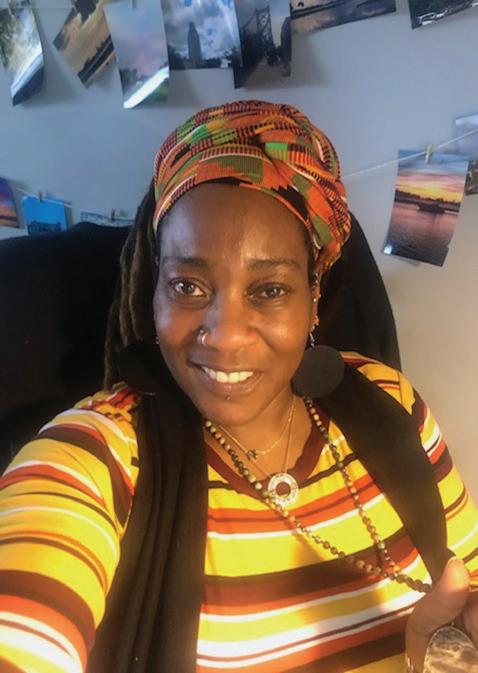
3 minute read
BLACK MENTAL HEALTH TODAY BOOK REVIEW
Black Fatigue: How Racism Erodes The Mind, Body and Spirit’
Insightful book explores the devastation suffered in a person’s early years. Experiences from both a scientific and personal perspective are shared
Advertisement
ARTICLE BY LATACIA RUFF
Mary-Frances Winters has a litany of accolades spanning almost four decades of her career, giving credence to monikers labeling her as a diversity pioneer. She is the founder and CEO of The Winters Group, a consulting firm that temporarily partners with organizations to help their staff shift attitudes, activities and approaches (of individuals and the company as a whole) toward those that are more equitable, diverse and inclusive. Additionally, Winters is the author of the thought-provoking book “Black Fatigue: How Racism Erodes the Mind, Body and Spirit.”
This book is a well-written resource that moves beyond listing how Black individuals have become tired from the weight of systemic, structural and sublime racism, and shares tools that can aid Black people in protecting themselves against Black fatigue. Further, Winters offers others who aren’t Black the methods that will assist in undoing the racist systems that benefit them.
The author draws the readers in with the preface by explaining why Black (when referring to a person) is capitalized while white as a description of ethnicity is not. She strategically uses each chapter to either highlight the impact of Black intergenerational fatigue, identify a specific educational resource or encourage readers to remember we have not made it – contrary to popular belief. Winters highlights that fact by sharing personal anecdotes from 30-year-old occurrences that have strong similarities to experiences that today’s young Black professionals face.
Because this work is promoted as a referral source, readers will appreciate the detailed definitions of terms like, but not limited to, diversity, equity, inclusion, belonging, racism, white privilege and, of course, Black fatigue. One other welcome feature is the list of books, author or subjects that inspired individuals can use to further explore and enhance their understanding, knowledge and commitment to their personal growth as either an ally or one disinterested in exacerbating symptoms associated with their fatigue.
This book has universal appeal as a great reference. For instance, it can help professionals committed to social justice, diversity, equity and inclusion work find strategies that will aid their crusade in removing barriers. Those who carry client caseloads can share this book as an alternative option that simultaneously affirms their experiences while permitting those same clients space to acknowledge how they feel or have been feeling and learn ways to decrease the impact of this type of fatigue causes. White people are asked to read the book for the history of the Black plight, but also to be motivated to become a “power broker for systemic change.”
There is also something endearingly profound in the author’s use of direct quotes from favored Black figures or white individuals who have aligned themselves as antiracists that frame each chapter within this book. The final one is from renowned activist Angela Davis, who shared, “I am no longer accepting the things that I cannot change. I am changing the things I cannot accept.” It serves as a final call to action for all to start their roles as change agents.
LaTacia Ruff, Ph.D., is on a mission to normalize mental health and debunk myths associated with mental health through her program Candid Conversations. Learn more at www. choose-ccc.com.










